A Russian-crewed cargo ship, HAV DOLPHIN, has attracted some attention after its movements coincided with drone incursions over German military installations, according to a cross-border investigation by Follow the Money, Süddeutsche Zeitung, NDR, VRT, De Tijd, and Pointer.
The vessel, flying the flag of Antigua and Barbuda but managed by the Norwegian company HAV, entered the Baltic Sea via the Kiel Canal on 24 August, after calling at Antwerp and declaring its destination as Vaasa, Finland.
Open-source researcher @auonsson drew renewed attention to the ship’s course, pointing to its suspected links with earlier drone-related incidents in northwest Germany.
Suspected drone carrier / cargo ship HAV DOLPHIN entered Baltic Sea via Kiel kanal, last port Antwerp. Stated destination Vasa, FI
The Russian crewed ship is suspected if being behind drone flights over military installations in NW Germany a few months ago. pic.twitter.com/i4QfsyLyzi
— auonsson (@auonsson) August 24, 2025
The investigation detailed how HAV DOLPHIN spent almost a month in Kaliningrad beginning on 10 April 2025, officially for maintenance. Kaliningrad is a hub of Russian naval and intelligence activity and a regular base for spy ships and auxiliaries tied to Moscow’s so-called “shadow fleet.” After departing for the Latvian port of Liepāja, the ship’s AIS signal disappeared. When it reappeared, the vessel was 26 nautical miles from its previous reported position, a red flag for maritime trackers. On the same day, GPS disruptions were recorded in the region, something that has been associated with Russian jamming operations.
Five days later the ship lingered in the Kiel Bight longer than expected. Analysts note that unexplained loitering has become a common feature of Russian-crewed ships suspected of intelligence work. In May, Dutch, German, and Belgian authorities boarded the HAV DOLPHIN and another Russian-crewed vessel, LAUGA, searching for drones. Neither inspection uncovered physical evidence, but European officials told Follow the Money that both ships remain under surveillance due to concerns about Russia’s hybrid warfare strategy.
The scrutiny comes amid a surge in drone sightings above German military sites. A map shared by @auonsson showed 257 drone incursions in the first quarter of 2025 alone, with concentrations in Schleswig-Holstein, Lower Saxony, Hamburg, and North Rhine-Westphalia. In one case, two days after the HAV DOLPHIN was inspected near Rotterdam, the LAUGA was linked to a swarm of drones tracked by German naval patrol vessels. While no drones have been directly tied to the ships, investigators argue the timing and location of vessel activity and drone flights raise serious questions.
As Follow the Money put it: “European authorities suspect Russia of using drones to spy on and intimidate, but catching them in the act proves difficult. Suspicious ship behaviour can also have other causes, making definitive proof hard to establish.”
Related, map of drone incursions in Germany for only the first quarter 2025. 257 (sic) incidents. pic.twitter.com/Y8lSpZyLRJ
— auonsson (@auonsson) August 24, 2025
The wider concern is that vessels like HAV DOLPHIN represent a grey-zone challenge: legally commercial, but potentially operating with intelligence or sabotage missions.
Earlier this year, UK Defence Journal joined NATO forces aboard the Swedish Navy ship Carlskrona as part of Operation Baltic Sentry, a patrol mission aimed at deterring such threats. Officers described the task as a constant process of filtering traffic: “We are constantly scanning for deviations. If something looks out of place, we investigate and report it if necessary.”
Commodore Arjen Warnaar, Commander of NATO’s Standing Naval Group 1, was frank about the ambiguity of the situation when talking to me onboard earlier this year: “All the ships that have been involved and have been dragging their anchors for miles and miles around the Baltic started from a Russian port or were going to a Russian port. Now that seems strange, but if you ask me who done it, I don’t know. I can tell you that, because I’m not sure.”
For NATO, the solution has been constant visibility. Warnaar compared it to police patrolling a neighbourhood after a wave of break-ins: “What usually happens? The number of break-ins reduces. That’s more or less what we’re doing, too. If anything happens, we react. And what we hope for is that that will reduce the number of incidents.”
With Sweden and Finland now NATO members, surveillance in the Baltic is reinforced by a broader network of assets spanning surface, subsurface, air, cyber, and space domains. Warnaar confirmed that unmanned systems are already part of NATO’s toolkit: “What I can tell you is that they’re already using unmanned systems today.”
The HAV DOLPHIN case highlights the difficulty of proving intent at sea. Suspicious loitering, AIS obfuscation, and long port calls in Kaliningrad are circumstantial, but together they form a mounting dossier that European security services say cannot be ignored.


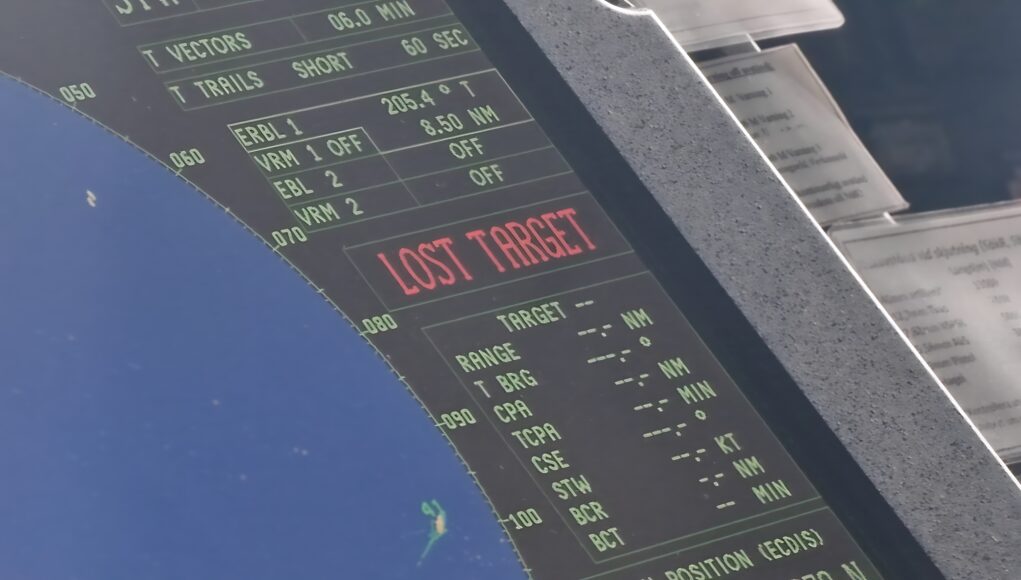
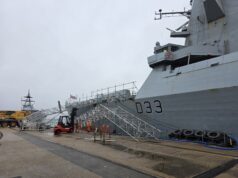



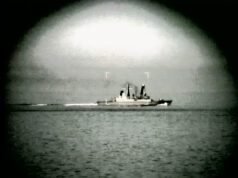
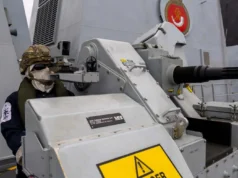


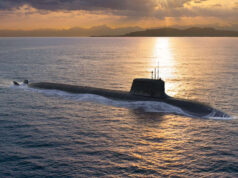
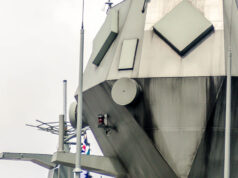

If the west can’t track any drone activity from two vessels suspected of it for months not to mention at least one being owned by an allied Nation then what the hell are the relevant authorities actually capable of. Certainly doesn’t bode well for any unpredictable and decidedly hostile mass drone attack does it. What sort of company in Norway owns this vessel and why is such a vessel even allowed to dock in Kallingrad. No wonder Russia doesn’t take Europe very seriously. Equally is Germany actually taking any action against drone activity at its military bases? Really is about time we started getting serious within our own borders rather than desperately try not to upset the Russians when they are allegedly being so overtly provocative the other way. Just imagine the situation reversed.
Putin will push the drones and drag the anchors. We will have to be aware and get prepared but not sure entirely how.
time to unite and seriously clamp down on these russian “ghost fleets”. need to take necessary measures to stop the sabotage, spying or bypassing sanctions. ie any company that charters boats for Russia loses its ability to make any port calls to Euro ports with the rest of its fleet. pretty sure companies in Panama, etc… may think twice before doing business with russia.
afterall Turkey can close off the straits in the Bosphurus under certain conditions, Europe should be able to do the same in the straits in Gibraltar, Channel and Baltic with a country that has declared an illegal invasion in Europe!
Bored of Ukraine, bored of Russia, bored of Chairman Starmer, bored of immigrants, bored of China, bored of Israel, bored of the police, bored of the country being fcuked, bored of rainbow flags, bored of speed cameras, bored of no music scene, bored of shit films, bored of being taxed, bored of potholes, bored of the NHS, bored of multiculturalism, bored of YouTube adverts, bored of all MPs, bored of water companies, bored of mortgage lenders, bored of paying council tax, bored of paying 27% more for my water in a piss wet through country, bored with not being able to openly appreciate a nice pair of tits without being branded a pervert and/or arrested by 5ft police people.
Would like like a crayon 🖍️.
Sorry would you like a crayon 🖍️ draining does help, it’s called art therapy 👍
Get a life, then. England just got it’s first shower of rain for 2 months.
This January there were 6 events in Germany of suspected Russian spy drones invading the air space of a military airbase where Ukrainians were being trained on Patriot missile systems. These drones were serious military craft. The German air force at the base employed a number of anti-drone systems to try and bring down the drones but their jamming systems failed to bring them down. Nor could the drone operators be detected. The German military suspected that the operators launched the drones from ships in the North or Baltic Sea.